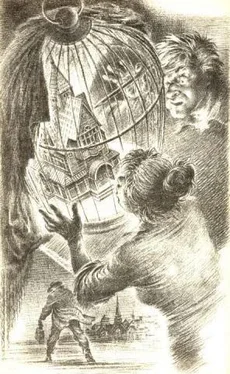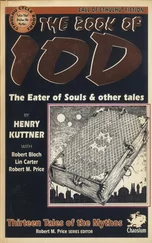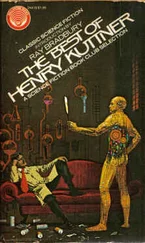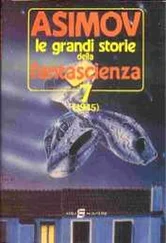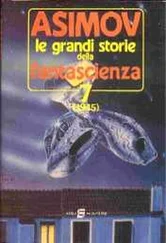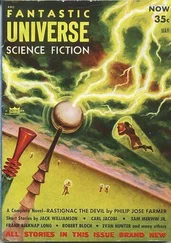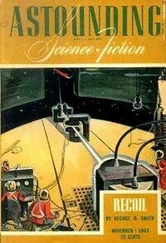Henry Kuttner - Housing Problem
Здесь есть возможность читать онлайн «Henry Kuttner - Housing Problem» весь текст электронной книги совершенно бесплатно (целиком полную версию без сокращений). В некоторых случаях можно слушать аудио, скачать через торрент в формате fb2 и присутствует краткое содержание. Жанр: Юмористическая фантастика, на английском языке. Описание произведения, (предисловие) а так же отзывы посетителей доступны на портале библиотеки ЛибКат.
- Название:Housing Problem
- Автор:
- Жанр:
- Год:неизвестен
- ISBN:нет данных
- Рейтинг книги:5 / 5. Голосов: 1
-
Избранное:Добавить в избранное
- Отзывы:
-
Ваша оценка:
- 100
- 1
- 2
- 3
- 4
- 5
Housing Problem: краткое содержание, описание и аннотация
Предлагаем к чтению аннотацию, описание, краткое содержание или предисловие (зависит от того, что написал сам автор книги «Housing Problem»). Если вы не нашли необходимую информацию о книге — напишите в комментариях, мы постараемся отыскать её.
Housing Problem — читать онлайн бесплатно полную книгу (весь текст) целиком
Ниже представлен текст книги, разбитый по страницам. Система сохранения места последней прочитанной страницы, позволяет с удобством читать онлайн бесплатно книгу «Housing Problem», без необходимости каждый раз заново искать на чём Вы остановились. Поставьте закладку, и сможете в любой момент перейти на страницу, на которой закончили чтение.
Интервал:
Закладка:
I let go of the cover and stepped back, pulling Jackie with me.
“A d-doll house, Eddie!”
“With dolls in it?”
I stared past her at the hooded cage. “Could you, maybe, do you think, perhaps, train a canary to pull down shades?”
“Oh, my! Eddie, listen.”
Faint sounds were coming from the cage. Rustles, and an almost inaudible pop. Then a scraping.
I went over and took the cretonne cloth clear off. This time I was ready; I watched the windows. But the shades flicked down as I blinked.
Jackie touched my arm and pointed. On the sloping roof was a miniature brick chimney; a wisp of pale smoke was rising from it. The smoke kept coming up, but it was so thin I couldn’t smell it.
“The c-canaries are c-cooking,” Jackie gurgled.
We stood there for a while, expecting almost anything. If a little green man had popped out of the front door and offered us three wishes, we shouldn’t have been much surprised. Only nothing happened.
There wasn’t a sound, now, from the wee house in the bird cage.
And the blinds were down. I could see that the whole affair was a masterpiece of detail. The little front porch had a tiny mat on it. There was a doorbell, too.
Most cages have removable bottoms. This one didn’t. Resin stains and dull gray metal showed where soldering had been done. The door was soldered shut, too. I could put my forefinger between the bars, but my thumb was too thick.
“It’s a nice little cottage, isn’t it?” Jackie said, her voice quavering. “They must be such little guys—”
“Guys?”
“Birds. Eddie, who lives in that house?”
‘Well,” I said. I took out my automatic pencil, gently inserted it be tween the bars of the cage, and poked at an open window, where the shade snapped up. From within the house something like the needle-
beam of a miniature flashlight shot into my eye, blinding me with its brilliance. As I grunted and jerked back, I heard a window slam and the shade come down again.
“Did you see what happened?”
“No, your head was in the way. But—”
As we looked, the lights went out. Only the thin smoke curling from the chimney indicated that anything was going on.
“Mr. Henchard’s a mad scientist,” Jackie muttered. “He shrinks people.”
“Not without an atom-smasher,” I said. “Every mad scientist’s got to have an atom-smasher to make artificial lightning.”
I put my pencil between the bars again. I aimed carefully, pressed the point against the doorbell, and rang. A thin shrilling was heard.
The shade at one of the windows by the door was twitched ‘aside hastily, and something probably looked at me. I don’t know. I wasn’t quick enough to see it. The shade fell back in place, and there was no more movement. I rang the bell till I got tired of it. Then I stopped.
“I could take the cage apart,” I said.
“Oh no! Mr. Henchard—”
‘Well,” I said, “when he comes back, I’m going to ask him what the hell. He can’t keep pixies. It isn’t in the lease.”
“He doesn’t have a lease,” Jackie countered.
I examined the little house in the bird cage. No sound, no movement. Smoke coming from the chimney.
After all, we had no right to break into the cage. Housebreaking? I had visions of a little green man with wings flourishing a night stick, arresting me for burglary. Did pixies have cops? What sort of crimes.
I put the cover back on the cage. After a while, vague noises emerged. Scrape. Thump. Rustle, rustle, rustle. Pop. And an unbirdlike trilling that broke off short.
“Oh, my,” Jackie said. “Let’s go away quick.”
We went right to bed. I dreamed of a horde of little green guys in Mack Sennett cop uniforms, dancing on a bilious rainbow and singing gaily.
The alarm clock woke me. I showered, shaved and dressed, thinking of the same thing Jackie was thinking of. As we put on our coats, I met her eyes and said, “Shall we?”
“Yes. Oh, golly, Eddie! D-do you suppose they’ll be leaving for work, too?”
“What sort of work?” I inquired angrily. “Painting buttercups?”
There wasn’t a sound from beneath the cretonne when we tiptoed into Mr. Henchard’s room. Morning sunlight blazed through the window. I jerked the cover off. There was the house. One of the blinds was up; all the rest were tightly firm. I put my head close to the cage and stared through the bars into the open window, where scraps of chintz curtains were blowing in the breeze.
I saw a great big eye looking back at me.
This time Jackie was certain I’d got my mortal wound. The breath went out of her with a whoosh as I caromed back, yelling about a horrible blood-shot eye that wasn’t human. We clutched each other for a while and then I looked again.
“Oh,” I said, rather faintly. “It’s a mirror.”
“A mirror?” she gasped.
“Yeah, a big one, on the opposite wall. That’s all I can see. I can’t get close enough to the window.”
“Look on the porch,” Jackie said.
I looked. There was a milk bottle standing by the door—you can guess the size of it. It was purple. Beside it was a folded postage stamp.
“Purple milk?” I said.
“From a purple cow. Or else the bottle’s colored. Eddie, is that a newspaper?”
It was. I strained my eyes to read the headlines. EXTRA was splashed redly across the sheet, in huge letters nearly a sixteenth of an inch high. EXTRA—FOTZPA MOVES ON TUR! That was all we could make out.
I put the cretonne gently back over the cage. We went down to Terry’s for breakfast while we waited for the bus.
When we rode home that night, we knew what our first job would be. We let ourselves into the house, discovered that Mr. Henchard hadn’t come back yet, switched on the light in his room, and listened to the noise from the bird cage.
“Music,” Jackie said.
It was so faint I scarcely heard it, and, in any case, it wasn’t real music. I can’t begin to describe it. And it died away immediately. Thump, scrape, pop, buzz. Then silence, and I pulled off the cover.
The house was dark, the windows were shut, the blinds were down. Paper and milk bottle were gone from the porch. On the front door was a sign that said—after I used a magnifying glass: QUARANTINE! SCOPPY FEVER!
“Why, the little liars,” I said. “I bet they haven’t got scoppy fever at all.”
Jackie giggled wildly. “You only get scoppy fever in April, don’t you?”
“April and Christmas. That’s when the bread-and-butter flies carry it. Where’s my pencil?”
I rang the bell. A shade twitched aside, flipped back; neither of us had seen the—hand?—that moved it. Silence; no smoke coming out of the chimney.
“Scared?” I asked.
“No. It’s funny, but I’m not. They’re such standoffish little guys. The Cabots speak only to—”
“Where the pixies speak only to goblins, you mean,” I said. “They can’t snoot us this way. It’s our house their house is in, if you follow me.”
“What can we do?”
I manipulated the pencil, and, with considerable difficulty, wrote LET US IN on the white panel of the door. There wasn’t room for more than that. Jackie tsked.
“Maybe you shouldn’t have written that. We don’t want to get in. We just want to see them.”
“Too late now. Besides, they’ll know what we mean.”
We stood watching the house in the bird cage, and it watched us, in a sullen and faintly annoyed fashion. SCOPPY FEVER, indeed!
That was all that happened that night.
The next morning we found that the tiny front door had been scrubbed clean of my pencil marks, that the quarantine’ sign was still there, and that there was a bottle of green milk and another paper on the porch. This time the headline said. EXTRA—FOTZPA OVERSHOOTS TUR!
Читать дальшеИнтервал:
Закладка:
Похожие книги на «Housing Problem»
Представляем Вашему вниманию похожие книги на «Housing Problem» списком для выбора. Мы отобрали схожую по названию и смыслу литературу в надежде предоставить читателям больше вариантов отыскать новые, интересные, ещё непрочитанные произведения.
Обсуждение, отзывы о книге «Housing Problem» и просто собственные мнения читателей. Оставьте ваши комментарии, напишите, что Вы думаете о произведении, его смысле или главных героях. Укажите что конкретно понравилось, а что нет, и почему Вы так считаете.
